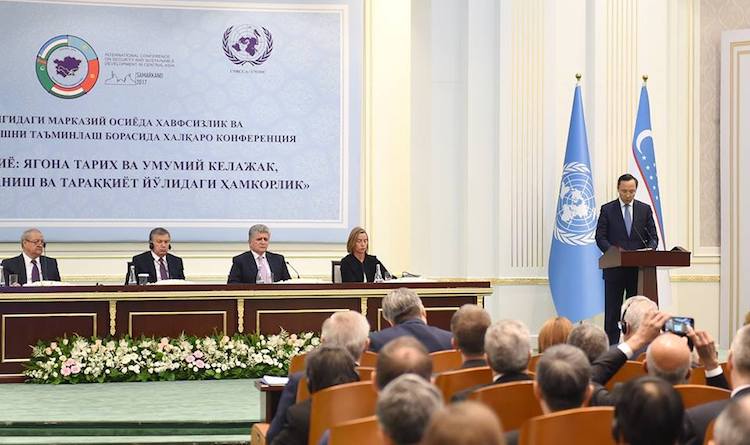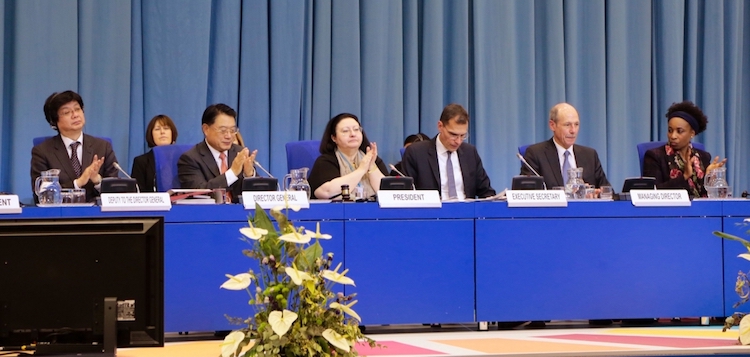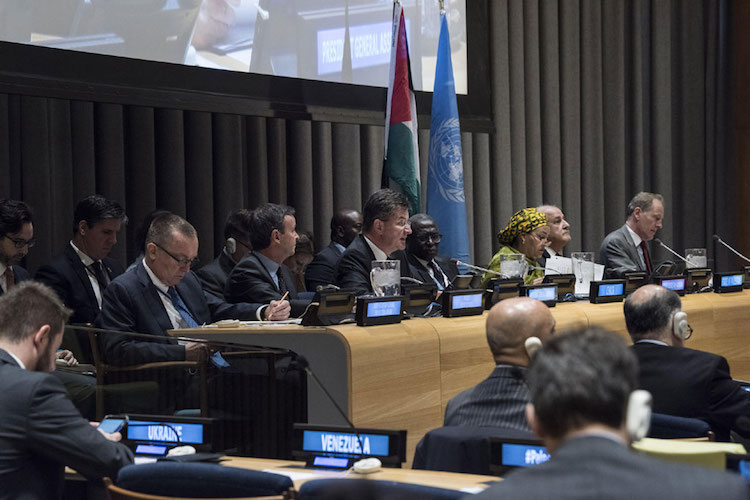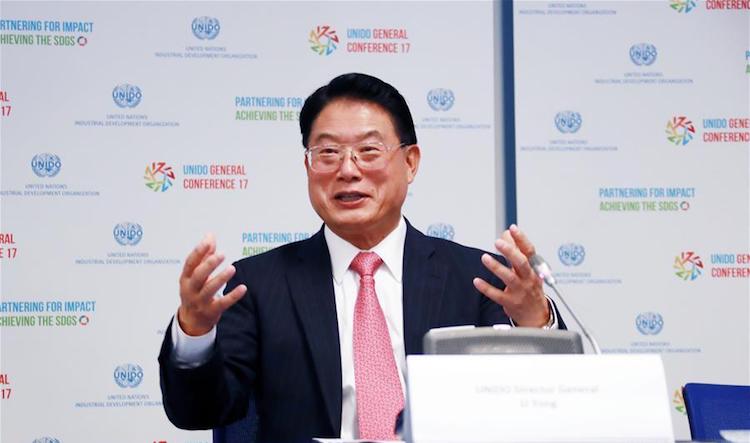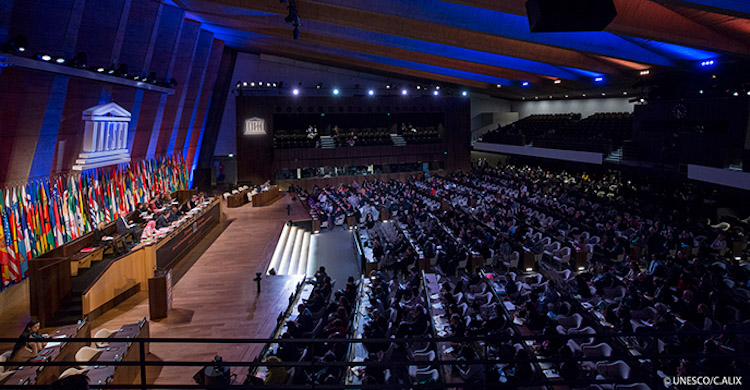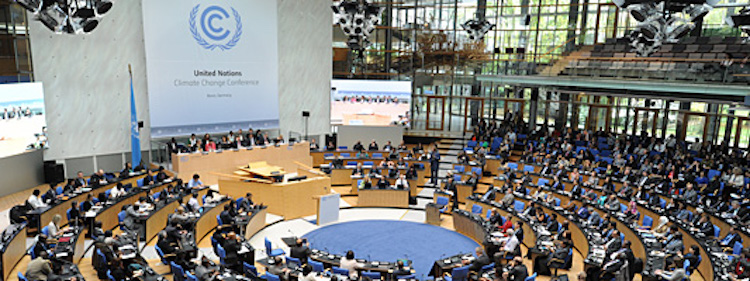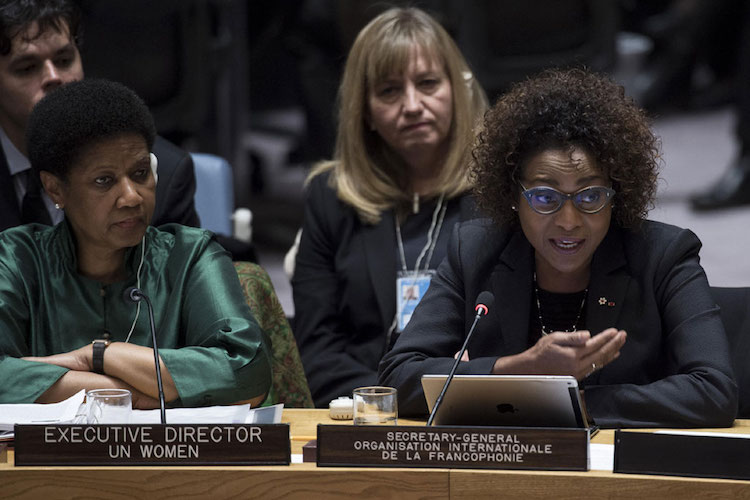By J Nastranis NEW YORK (IDN) – In the run-up to Kazakhstan assuming the UN Security Council’s rotating presidency for January 2018, Kazakh Foreign Minister Kairat Abdrakhmanov has accentuated that the Central Asian country stands for the creation of a model of a regional zone of peace, security and cooperation in Central Asia and Afghanistan. […]
134-Nation Group Garners Support for SDG 9 at UNIDO Meeting
By Ramesh Jaura VIENNA (IDN) – “We are in a time when multilateralism is being challenged. Your participation in this General Conference reaffirms the relevance of UNIDO’s work to your governments and the people on the ground,” said Miroslav Lajčák, Slovakia’s Foreign Minister and President of the 72nd session of the UN General Assembly until […]
UNGA Adopts Six Resolutions on Palestine, Middle East
By J Nastranis UNITED NATIONS (IDN) – Seventy years since the United Nations adopted the Partition Plan for Palestine as Resolution 181 (1947) on November 29, 1947 a hectic debate in the General Assembly has reaffirmed that peace in the Middle East is nowhere on the horizon. In fact, several delegates voiced concern that the […]
UNIDO Chief Has A ‘Dream’, Urgently Needs Funds
By Ramesh Jaura VIENNA (IDN) – Li Yong has a ‘dream’, the dream to give young people, living in similarly poor conditions as he experienced in China in his childhood, an opportunity to play a part in “the global fight against poverty”. Li was re-appointed head of the United Nations Industrial Development Organization (UNIDO) on […]
Security Council Delegation Visits Kabul Before Kazakhstan Assumes Presidency for January
By J Nastranis NEW YORK (IDN) – Kazakhstan is a non-permanent member of the UN Security Council for 2017-2018. Ambassador Kairat Umarov, the Permanent Representative of Kazakhstan to the United Nations, chairs the Council’s Committees 1988 on the Taliban movement and 1267 on ISIL (Da’esh) and Al-Qaida. Nearly two months ahead of Kazakhstan assuming the […]
New UNESCO Director-General Aims to Bridge Divides
By A.D. McKenzie PARIS (IDN) – “May the force be with you” was one of the comments by an ambassador at the investiture ceremony of UNESCO’s new director-general, Audrey Azoulay of France, on November 13. The “Star Wars” quotation was meant to evoke the many challenges that lie ahead for Azoulay as she takes over […]
France Puts Focus on Funding with ‘One Planet Summit’
By A.D. McKenzie
PARIS (IDN) – A day after the latest UN Climate Change Conference (COP 23) began in Bonn, Germany, the French government upped the momentum by announcing concrete plans for its own “One Planet Summit” to be held December 12.
This summit will have more than 100 countries represented and will focus on financing to combat climate change, according to the organisers.
French officials said that “for the moment” U.S. President Donald Trump had not been invited, but that “numerous American players” who are mobilising for climate action will be present. In June, Trump announced plans to withdraw the United States from the Paris Agreement, to international criticism.
Cataclysm Looms Large As UN Climate Talks Convene
By Franz Baumann | Reproduced courtesy of PassBlue
The author is a visiting professor at New York University and a former assistant secretary-general of the United Nations (and special adviser on environment and peace operations). This article originally appeared with the headline: As UN Climate Talks Convene, the Earth Veers Toward Catastrophe. – The Editor
NEW YORK (IDN | Passblue) – Two years ago, the governments of the world unanimously adopted the 2030 Agenda for Sustainable Development, a remarkable blueprint of the world’s most pressing long-term predicaments that the United Nations is good at lifting into the global conscience. Cataloguing 17 goals and 169 targets, the agenda contains an inventory of the remedial activities that are expected of all countries, and that includes climate change.
No Real Progress Toward Gender Equality Since October 2000
By Santo D. Banerjee
UNITED NATIONS (IDN) – While normative frameworks to empower and protect women in conflict situations have made steady advancement in the last 17 years since the adoption of a landmark resolution by the Security Council, real progress in women’s meaningful engagement in all phases of peacebuilding and their protection from abuse and exploitation are seriously lagging.
The representatives of UN member states at the ministerial and diplomatic levels agreed during a 10-hour Security Council debate on October 27 on ‘Women, Peace and Security’ that progress on the ground must be accelerated by way of more funding for gender expertise in peacebuilding.
Growing Support for Ending Political Marginalization of Women
Viewpoint by Phumzile Mlambo-Ngcuka
The writer is UN Under-Secretary-General and Executive Director of UN Women. Following are extensive excerpts from her statement at the Security Council Open Debate on Women, Peace and Security on October 27, 2017, commenting the Report of the Secretary-General on women and peace and security. – The Editor
UNITED NATIONS (IDN) – Although women’s absence from peace tables is no longer easily brushed off as normal, it is still commonplace. Every year, we track women’s overall participation in peace processes that are led by the UN. We track the inclusion of gender expertise and gender-sensitive provisions in peace agreements, and the requirement to consult with women’s civil society organizations. In all of these indicators, we performed slightly worse than a year ago.

